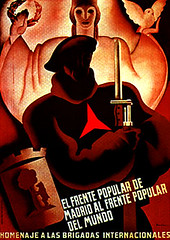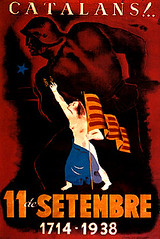The Representation of Reality
The poet explains nothing, and yet the things which happen are stated with a paratactic bluntness which says that everything must happen as it does happen, it could not be otherwise, and there is no need for explanatory connectives. This, as the reader knows, refers not only to the events but also to the views and principles which form the basis of the actions of the persons concerned. The knightly will to fight, the concept of honor, the mutual loyalty of brothers in arms, the community of the clan, the Christian dogma, the allocation of right and wrong to Christians and infidels, are probably the most important of these views. They are few in number. They give a narrow picture in which only one stratum of society appears, and even that stratum in a greatly simplified form. They are posited without argument as pure theses: these are the facts. No argument, no explanatory discussion whatever is called for when, for example, the statement is made: paien unt tort et christiens unt dreit (l. 1015: heathens are wrong and Christians are right), although the life of the infidel knights -- except for the names of their gods -- seems hardly different from that of the Christians. . . . The Christianity of the Christians is simply a stipulation. It exhausts itself in the creed and the liturgic formulas that go with it. Furthermore it is, in a very extreme sense, made to serve the knightly will to fight and political expansion. The penance laid upon the Franks when they pray and receive absolution before going into battle is to fight hard; whoever falls in the fight is a martyr and can surely expect a place in Paradise. Conversions by force which involve the killing of those who offer resistance are works with which God is well pleased. This attitude, astonishing as a Christian attitude and non-existent as such in earlier times, is not based, here in the Chanson de Roland, on a given historical situation, as it was in Spain, whence it would seem to have stemmed. Nor is any other explanation of it given. That is the way it is -- a paratactic situation, made up of theses which, extremely narrow as they are, are yet full of contradiction.
--Erich Auerbach, Mimesis: The Representation of Reality in Western Literature, "Roland Against Ganelon," pp. 101-102
--Erich Auerbach, Mimesis: The Representation of Reality in Western Literature, "Roland Against Ganelon," pp. 101-102


0 Comments:
Post a Comment
<< Home